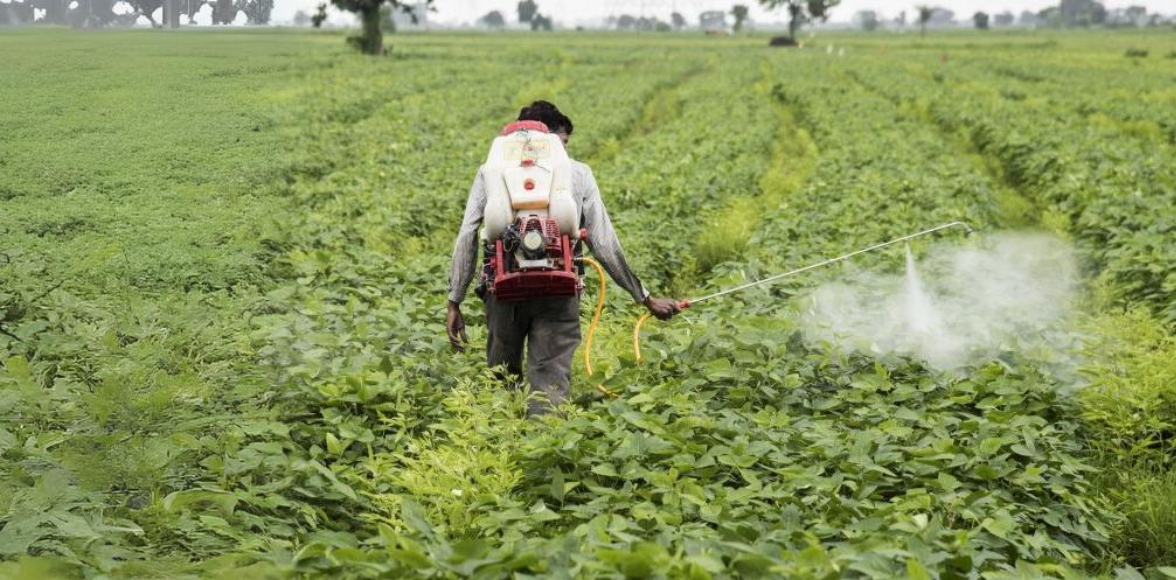
Agrochemial
Anantshree Agrochemicals
Polypropylene (PP) bags are extensively used for packaging agrochemicals, which include fertilizers, pesticides, herbicides, and other agricultural chemicals. The properties of PP bags make them a suitable choice for this application. Here’s a comprehensive look at how PP bags are utilized in agrochemical packaging and why they are effective:
1. Durability and Strength
Load-Bearing Capacity: PP bags are designed to be strong and durable, which is essential for holding heavy and often dense agrochemical products. They can handle the weight and pressure without tearing or breaking.Resistance to Physical Damage: The bags are resistant to punctures and abrasions, providing protection against physical damage during handling, transportation, and storage.
2. Moisture Resistance
Basic Protection: PP bags offer a certain level of moisture resistance, which helps in keeping agrochemicals dry. Since many agrochemicals are sensitive to moisture, this property is crucial to prevent clumping, degradation, or chemical reactions.Additional Measures: For products highly sensitive to moisture, additional protective measures such as inner liners or moisture-absorbing materials can be used to enhance moisture protection.
3. Chemical Resistance
Resistance to Chemicals: Polypropylene is resistant to many chemicals, which helps in preserving the integrity of agrochemicals. This resistance prevents chemical reactions between the packaging and the contents.Safe Storage: This property ensures that the packaging does not react with the agrochemical products, maintaining their efficacy and safety.
4. Cost-Effectiveness
Economical Packaging: Polypropylene is a cost-effective material, which helps in keeping packaging costs lower. This is particularly beneficial for bulk or large-scale packaging of agrochemicals.Bulk Packaging: The affordability of PP bags makes them suitable for bulk packaging, allowing for efficient handling and storage of large quantities.
5. Customizability
Branding and Information: PP bags can be easily printed with branding, product information, safety instructions, and usage guidelines. This facilitates effective marketing and provides users with essential information about the agrochemicals.Variety of Sizes and Designs: They are available in various sizes and designs to accommodate different packaging needs, from small retail packs to large industrial quantities.
6. Ease of Handling
Lightweight: The lightweight nature of PP bags simplifies handling, transportation, and storage. This helps in reducing shipping costs and improving operational efficiency.Flexibility: PP bags are flexible, allowing for easy stacking and organization, which optimizes storage space and logistics.
7. Reusability and Recyclability
Sustainable Option: PP bags can be reused and are recyclable, contributing to more sustainable packaging practices. However, the availability of recycling facilities for PP bags may vary by region.Environmental Considerations: While PP bags are a more sustainable option compared to some single-use packaging materials, proper disposal and recycling are important to minimize their environmental impact.
8. Safety and Compliance
Non-Toxic: Polypropylene is considered safe for use in contact with chemicals. It does not release harmful substances into the agrochemicals, ensuring that the packaging does not compromise the quality or safety of the products.Regulatory Compliance: PP bags used for packaging agrochemicals are often produced in compliance with industry regulations to ensure they meet safety and quality standards.
9. Applications and Benefits
Retail and Bulk Packaging: PP bags are versatile and used for both retail packaging of smaller quantities and bulk packaging of larger quantities of agrochemicals. This versatility makes them suitable for various market segments.Consumer Convenience: Features such as resealable closures or easy-open designs can be incorporated to enhance user convenience and ensure the agrochemicals remain effective and easy to handle..
Summary:
Polypropylene bags are an effective and practical choice for agrochemical packaging due to their strength, cost-effectiveness, chemical resistance, and moisture protection. For optimal performance, especially with highly sensitive or hazardous chemicals, additional protective measures may be employed to ensure the products remain in good condition and safe for use.Packing Solution from Anantshree
1. Woven PP Bags
Description: Made from woven polypropylene fibers, these bags are robust and durable.Features: High load-bearing capacity, resistance to tearing and punctures, and available in various sizes and closure options. Suitable for bulk agrochemical products.
2. PP Laminated Bags
Description: Feature an additional laminated layer for extra protection.Features: Enhanced moisture and dust resistance, better protection against contaminants, and superior printability for branding. Ideal for both bulk and retail agrochemical packaging.
3. PP Bags with Inner Liners
Description: PP bags with an inner plastic liner or coating.Features: Provides superior moisture protection and helps prevent contamination, preserving the quality of the agrochemical products.
4. BOPP (Biaxially Oriented Polypropylene) Bags
Description: Combine the strength of PP with a high-quality, glossy surface for premium packaging.Features: Enhanced appearance, excellent moisture and dirt protection, and high-quality printability for effective marketing and branding.